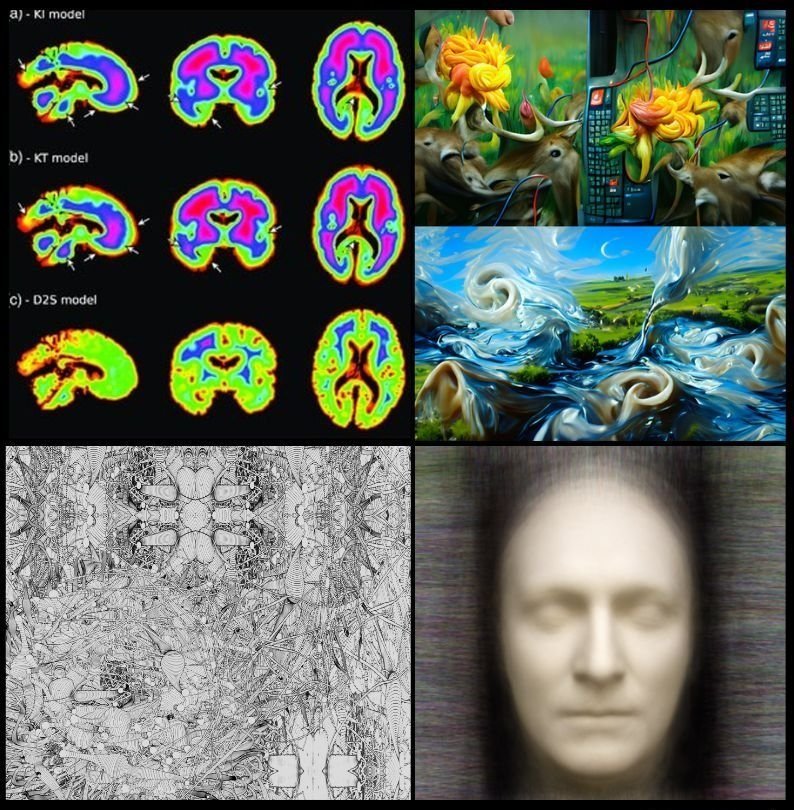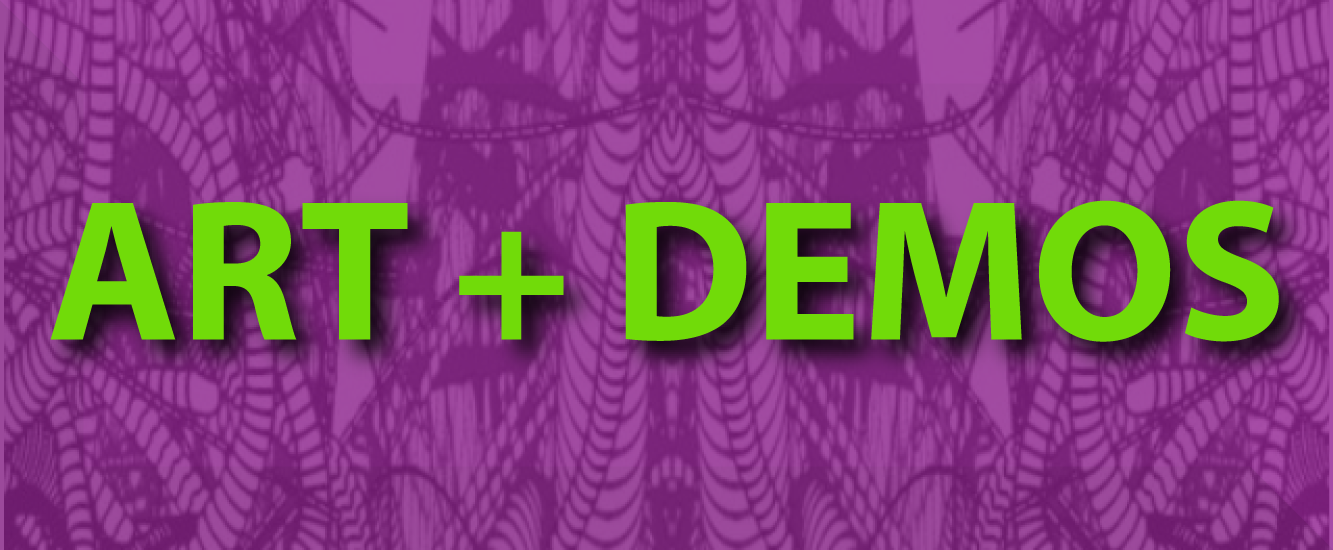Creative Machine
Oxford Symposium 2023
Creative Machine Oxford has been developed by Goldsmiths, University of London, in partnership with Jesus College Oxford. The one-day event is generously supported by the Alan Turing Institute.
Event at the new Cheng Kar Shun Digital Hub, Jesus College, Oxford. Tuesday 30th May 2023
Creative Machine Symposium to be hosted in Oxford for first time.
The Creative Machine Oxford Symposium, is a prestigious showcase of the latest creative applications of artificial intelligence (AI) at the intersection of AI and creativity across the domains of digital art, neuroscience, scientific discovery and music is coming to the University of Oxford for the first time this year.
Creative Machine Oxford has been developed by Goldsmiths, University of London, in partnership with Jesus College Oxford, and will be held in the College’s new Cheng Kar Shun Digital Hub on Tuesday 30 th May 2023. The one-day event is generously supported by the Alan Turing Institute.
Bringing together invited speakers from the worlds of computing, AI, art, robotics, and virtual and augmented reality, the symposium will address topics such as ‘AI and visualisation in scientific discovery’, ‘Can AI be creative?’ and ‘Curating AI and Digital Art’. Across the day there will be a range of talks by leading experts from globally-recognised organisations and institutes, including Spotify, King, The Victoria and Albert Museum, Nuffield Department of Clinical Neuroscience, Weatherall Institute of Molecular Medicine, UCL and Wellcome as well as demonstrations of some of the latest creative AI technologies. Professor Sir Nigel Shadbolt, Jesus College Principal and Professorial Research Fellow in Computer Science at the University of Oxford, will host a keynote panel discussion exploring the impact and implications to society of AI in the 21st century.
Goldsmiths’ first Creative Machine event took place in 2014, and took the form of an art exhibition that explored the intersection between human and machine creativity, asking the question ‘Could a machine replace the human artist, and if not, could the machine be an effective creative partner to the artist?’
SYMPOSIUM THEMES
CAN AI BE CREATIVE?
The fundamental question of whether a computer can be more creative than a human is a current and contentious topic of debate. Leading speakers from Academia and Industry will address this theme. Are the software techniques we have now merely giving the illusion of creativity but not providing ‘real’ creativity? Should an AI system emulate the human, or should the system be something completely different? Will the computer ultimately be more creative than the human? Other important topics such as “How do you measure human or machine creativity?” will be covered along the way.
AI AS A PARTNER
Hybrid systems where control is switched back and forth between the human and a computer AI over time have many benefits. Creatives often feel comfortable with these systems. Is this getting the best of both worlds from a Human and Machine perspective? Or are we ultimately limiting the machine’s creative potential, which may be constrained and “slowed down” by the human’s limited conceptual framework and interaction? Or is it the opposite?
BETTER THAN BACH? AI AND MUSIC
Leading composers, musicians, and music technologists from industry and academia will outline their work in AI and music and consider the opportunities and challenges of developing AI computer systems to support the processes of composition and performance. The speakers will discuss under what conditions AI can stimulate and provoke new kinds of creative musical expression and whether there are any conditions under which systems can “post-compose” or even “out-compose” the composer. The role of AI in musical creative expression will be explored through live human / AI improvisation that sets out to understand the musical experiences of both performers and listeners.
AI AND VISUALISATION FOR SCIENTIFIC DISCOVERY
Can an AI “out-think” and “out-observe a scientist”? Or are current AI systems just useful statistical engines only as good as the huge quantity of data they process combined with the fine-tuning of AI filters? Can a machine independently observe and come up with a novel hypothesis? Leading speakers in this section explore these questions using examples from their own research work and the wider field.
HUMAN INTELLIGENCE: THE WORKINGS OF THE HUMAN BRAIN
As a counter balance to the computing and technology AI topics being discussed through the day, in this section Neuroscience and Medical experts explain how the human brain functions, providing insight, reflections and comparisons with the AI processes and technology. The section will, in addition, cover human perception and the cognitive processing of ideas. As a final question, we will cover “How does the human brain drive creativity?”
CURATING AI AND DIGITAL ART
Digital Art and AI have finally reached the Artworld! Led by leading Museum and Gallery Curators specialising in exhibiting digital and AI art, the panel will discuss the challenges of curating and selecting art works in this emerging art field and how to engage the public and art market. The challenges of identifying human artistic authorship and NFTs will also be discussed.
AI IMPACT AND IMPLICATIONS FOR SOCIETY PANEL
Professor Sir Nigel Shadbolt, Jesus College Principal and Professorial Research Fellow in Computer Science at the University of Oxford, will host a keynote panel discussion exploring the impact and implications to society of AI in the 21st century.
















